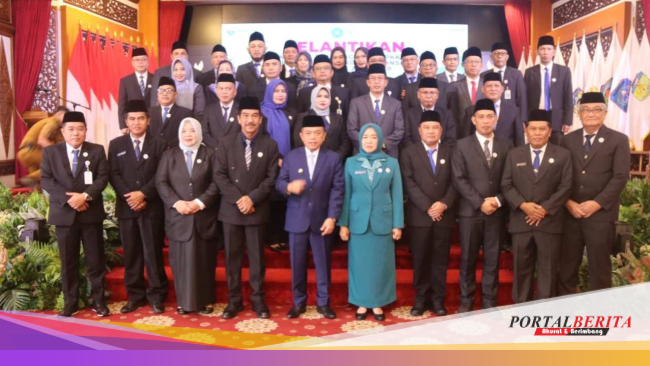Gubernur Jambi, Dr. H. Al Haris, S.Sos., MH, recently highlighted the government’s commitment to improving the welfare of its citizens through various programs, including Posyandu, nutritious food initiatives, community schools, and village cooperatives. This announcement came after the inauguration of the new management of the Family Welfare Empowerment Team (TP-PKK) and the Provincial Posyandu Guidance Team for the 2025-2030 term, which took place at the Governor’s Auditorium.
“Let us express our gratitude for all the blessings we’ve received, especially today as we witness the inauguration of new Posyandu and PKK officials. Thank you to the local leaders and everyone present,” stated Gubernur Al Haris.
Pentingnya Program Posyandu dalam Kesehatan Masyarakat
Gubernur Al Haris elaborated on the need to refocus on the Posyandu program, which historically has not maximized its potential, especially in rural areas. In the past, Posyandu was often linked to competitions rather than its primary goal of enhancing the health of pregnant mothers, nursing mothers, and children, along with preventing stunting. “We must enhance our efforts against stunting. The government has initiated a free nutritious food program, although its implementation has not been fully optimal across all regions, including Jambi. Enhancing the identification of undernourished children in schools is crucial to support this program,” he emphasized.
Data and experiences suggest that a robust approach towards health initiatives is necessary. For instance, the government’s renewed focus on the Posyandu demonstrates a commitment to not just initial health checks, but providing continuous assessments and nutritional programs. In several regions, local governments have recorded increased engagement in health awareness campaigns, which can further bolster the Posyandu’s effectiveness.
Inisiatif Lain untuk Meningkatkan Kesejahteraan Rakyat
In addition to the Posyandu program, Gubernur Al Haris mentioned the upcoming establishment of Community Schools aimed at underprivileged children from elementary to high school levels. These schools are set to be constructed throughout various regions, ensuring children from less fortunate backgrounds have access to education. The Ministry of Social Affairs is spearheading this initiative, with data already submitted by local authorities to establish one school per district and three schools per province.
“God willing, the land for these schools will be prepared this year, with construction starting thereafter. While we can’t guarantee the completion of these projects this year, we are taking initial steps. The government’s focus remains on underprivileged children and nutritional standards,” he added. This initiative not only aims to provide education but also encompasses various support systems that would allow these children to thrive in both academia and health.
To support local welfare, the governor announced plans to construct 80,000 village cooperatives this year. These cooperatives can be linked to village-owned enterprises (BUMDes). If a BUMDes does not yet exist, the cooperatives will be established with financial backing of 5 billion rupiah each for operational needs, equipment, and transportation.
“In this way, village Posyandu will receive support from various entities, including schools and cooperatives. The goal is to ensure access to adequate nutrition and education,” he concluded. This multi-faceted approach aims to cultivate an environment where Indonesian children can grow healthy, educated, and equipped with opportunities for higher education both domestically and abroad.
Previously, the Chairperson of the TP-PKK and the Provincial Posyandu Guidance Team, Hj. Hesti Haris, stated that the success of Posyandu is a key performance indicator for the government. “Conversely, the failures of Posyandu may impact the evaluation of governmental performance at various administrative levels,” she remarked.











